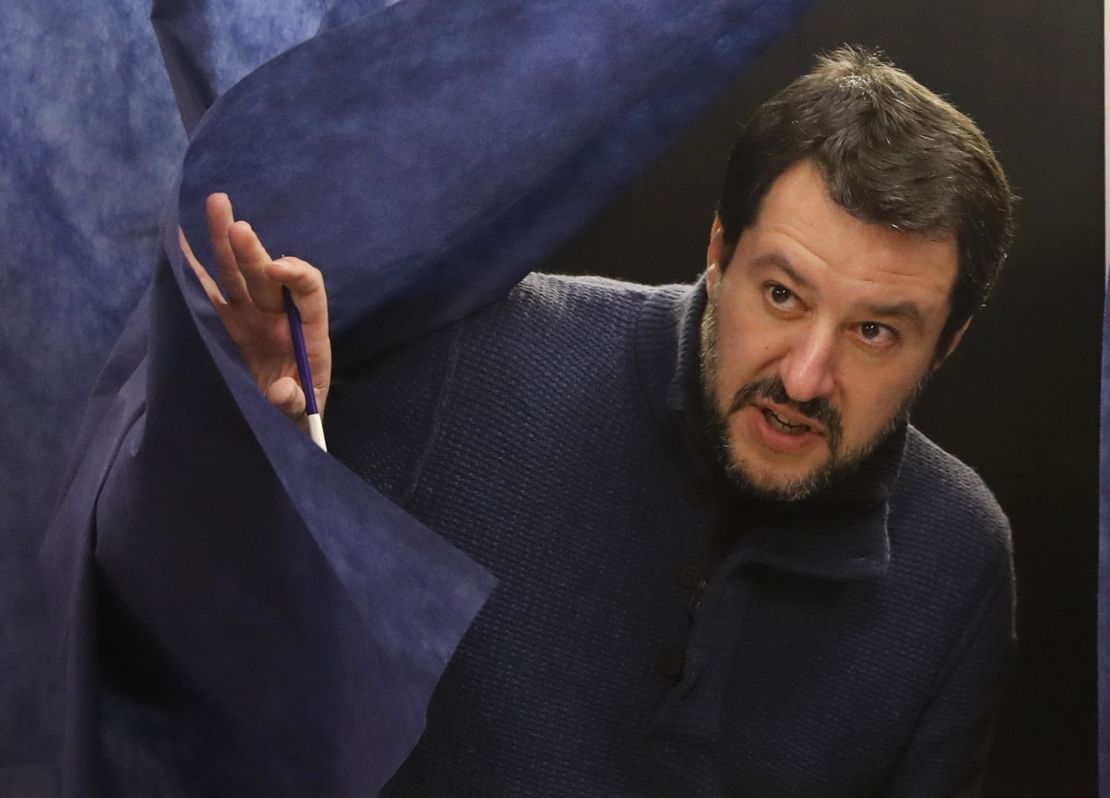Italy’s election result is yet another sign of popular resentments – against conventional politicians, the forces of globalization, immigration and the European “project.”
It wasn’t just the success of the anti-establishment Five Star Movement (M5S). Another party that surpassed expectations was the far-right League – formerly the Northern League – which did better than the center-right Forza Italia. The center-left coalition only managed around 22% and looks set to be the third-largest group in parliament behind the right-wing bloc and M5S.
In short, the center withered while populism thrived.
The result “will make for complex, unpredictable and lengthy coalition negotiations, which are likely to last well into spring,” according to Federico Santi at the Eurasia Group. And stable government will depend on the maverick M5S, which will be the largest party in parliament.
Prolonged upheaval and uncertainty may jeopardize Italy’s gradual recovery (growth was 1.5% in 2017, and for Italy, that’s success) and increase its borrowing costs. Italians simply didn’t feel times are getting better, despite four years of GDP growth. Unemployment is still close to 11%, with youth unemployment some 32%; productivity is poor by the standards of the Group of Seven countries.
The populist parties had a ready audience for their message. They accused Brussels of forcing reforms in Italy that make hiring and firing easier. Both M5S and the League had previously cast doubt on Italy’s membership of the eurozone, though more recently they softened that stance. They have expressed hostility to Europe’s major trade agreements with Japan and Canada. Many Italians blame the collapse of small and medium enterprises on unfair competition from Asia and elsewhere.
Tariff talk

Matteo Salvini, leader of the League, was rare among European politicians in welcoming US President Donald Trump’s sudden announcement of tariffs on imports of steel and aluminum last week.
“If Italians will choose me as Prime Minister I will [impose tariffs] like Trump. I will defend Italian workers and entrepreneurs, even if it means putting up tariffs to protect the ‘made in Italy’ brand,” Salvini said.
The Five Star Movement’s promise of a guaranteed minimum income for the poor also struck a chord. Italy’s National Statistics Institute reported last autumn that while the top 20% of Italians had enjoyed the fruits of recent growth, the bottom 30% faced “poverty and social exclusion.” The percentage of Italians living in poverty rose to 20.6% in 2016. Much of that poverty is in the south, where Five Star won 65 out of 80 districts, according to preliminary data from the Interior Ministry.
Even if just a few of the promises made are delivered, that’s very probably bad news for Italy’s budget deficit and its national debt, which is a dizzying 130% of GDP.
Given the size of the Italian economy – the third-largest in continental Europe – a surge in borrowing costs could quickly spook the markets and recall the days of the “PIGS” (Portugal, Ireland, Greece and Spain) in 2008 when several European economies looked like they would sink.
Anxiety in Brussels
For the European Union, the Italian election result is yet another headache. No sooner had the long-running German coalition negotiations finally been resolved (nearly six months after the election) than a new political crisis erupted in another major EU state – one that might unstitch a painstaking recovery there and further afield.
The leader of the French National Front, Marine le Pen, congratulated Salvini and said that the European Union was about to have “a bad night.”
The EU is confronted with some tough decisions in the coming months. It is threatening to retaliate if the Trump administration proceeds with tariffs on steel and aluminum imports; the Brexit negotiations are approaching a critical moment; and the EU has to agree on a common position on any changes to the nuclear deal with Iran as demanded by Washington. Meanwhile, tough budget negotiations are getting underway.
But after the Italian result, France and Germany are the only heavy hitters embracing further European integration and a deepening of the eurozone.
Goodbye social democracy?
The pro-Europe social democratic model that has been part of the European landscape since 1945 has suffered one setback after another in recent years. In the UK, the main opposition Labour Party has swung to the left under Jeremy Corbyn, abandoning Tony Blair’s “Third Way.”
The Social Democratic Party in Germany has accepted a junior role in the new German coalition in part because it risked hideous losses in fresh elections, if polls were accurate. The party of Willy Brandt and Helmut Schmidt was barely keeping up with the far-right Alternative for Germany.
The Socialist party in Spain has lost ground to the insurgent Podemos, an anti-establishment party on the left, and is now in third place in most polls.
The French Socialist party was obliterated in the presidential and parliamentary elections last year. In 2012 it had a majority in the National Assembly; its candidate for the presidency in 2017 received 6% of the vote.
In the Netherlands the Labor Party, often a senior partner in post-war coalitions, won less than 6% of the vote last year. Austria’s Social Democrats, in office for all but 11 years since 1945, are now in opposition to a right-wing coalition government.
At the same time, Poland and Hungary have populist right-wing governments that are hostile to EU policies on migration. Poland is also at loggerheads with the European Commission over controversial changes to its justice system.
The center-left parties of Europe have withered or changed for a variety of reasons – but there are common themes. Their traditional base, lower-paid and less-skilled workers, feel unprotected from what they see as the onslaught of immigration and globalization, growing inequality and the loss of jobs through automation.
Many millions of them have protested at the ballot box – in the Brexit vote and in elections across Europe. Italians have now joined the procession.





